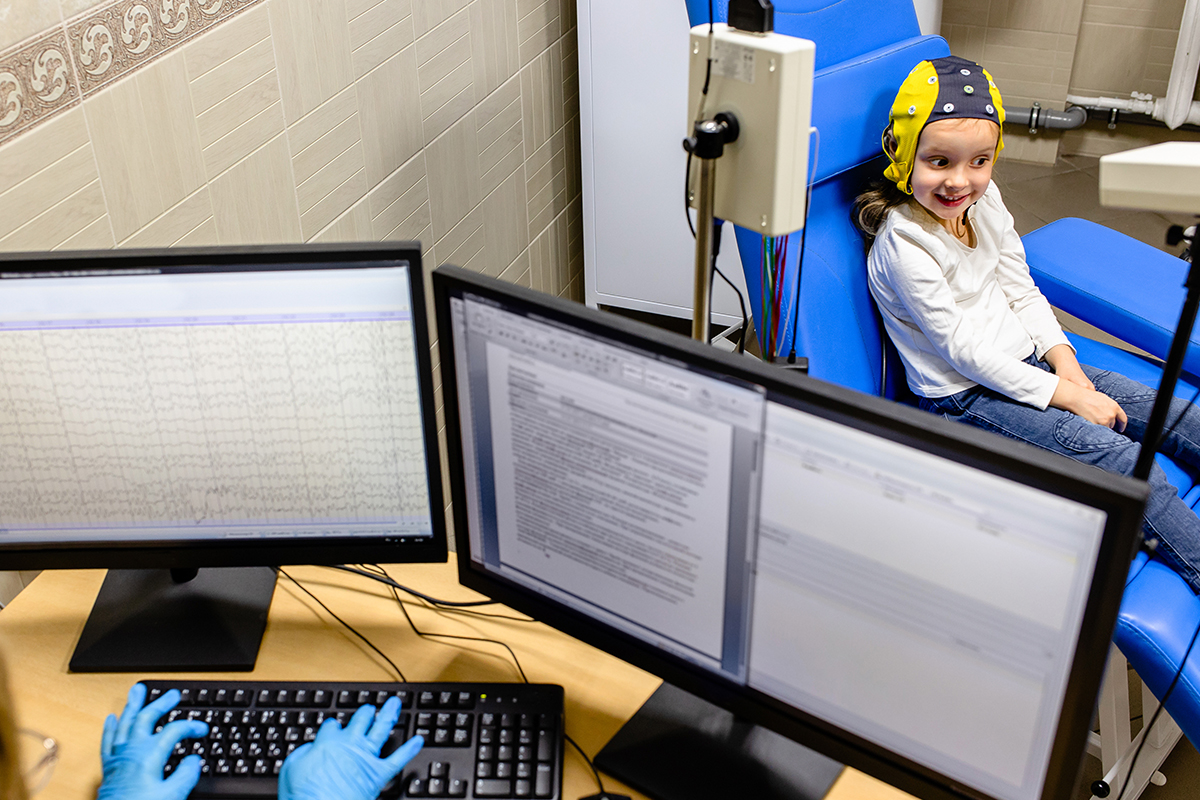
Summer Classes Forming Now
Cognitive Solutions offers one on one and group programs in the summer aimed at developing students’ processing abilities, executive functions, and academic weaknesses. Our programs are highly individualized, and designed to help our students reach their full potential. Our programming is designed for students diagnosed with Attention Deficit Disorder (ADD or ADHD), learning disabilities (dyslexia, dysgraphia, dyscalculia), or executive functioning difficulties in Chicago, Illinois. Contact us at 773-755-1775 or info@helpforld.com for more information on our summer remediation programs.
Learn More
What Exactly Is A Learning Specialist?
Learning Specialist – Isn’t that just a tutor?
By Ari Goldstein, Ph.D.
Tutors have existed for as long as man. Elders helping the younger generation learn the skill sets necessary to survive in their environment. Of course, early tutoring focused more on gathering food and creating shelter than on memorizing math tables. Fast forward to our test driven and memorization based school curriculum. Students have to absorb and repeat mountains of information on a regular basis. They have to work quickly, efficiently, and a strong competitive sense emergences in most classrooms from an early age. Most parents feel their children need to keep up, and some are concerned with even “Average” performance. As a result, Americans spend billions of dollars each year for tutoring support for their children.
A tutor is a very useful tool for many students. Tutors help their pupils learn facts, study for tests, and become more fluent and efficient with a range of academic tasks. But what happens when those academic deficiencies are driven by difficulties processing information? Does the tutoring work? My clinical experience would indicate that often it does not. When students come to Cognitive Solutions Learning Center in Chicago, many are initially assessed to better understand their processing and functioning through a comprehensive evaluation. Having information about how the brain processes information is highly useful when planning how to best help a student remediate areas of processing difficulty. Specialized interventions can be designed which are aimed at developing a student’s underlying cognitive and processing deficiencies. This makes the process of tutoring much more targeted and effective.
Tutors come in all shapes and sizes, with a wide variance in education, background, and experience. They range from high-school and college students looking to make some extra money to retired teachers who love helping children, and everywhere in between. How well a tutor can help a student often depends on their experience and their ability to develop a strong rapport. But what they can do is often limited. Without understanding of and intervention with underlying processing deficiencies, many students will not make the expected levels of progress they are working so hard to gain. This frequently leads to frustration on the part of the student, the tutor, and the teachers and parents.
A learning specialist is someone who typically possesses a minimum of a Master’s Degree in a special education related field. The have extensive experience reading and interpreting psychoeducational and neuropsychological evaluations, and are able to use these documents to create intensive and effective remediation programs. Many work as special education teachers in the school system, and develop private interventions for students in after-school hours. Learning specialists work to strengthen underlying brain processing, at the same time helping the student develop a strong academic skill base.
A student who has difficulty reading will often begin work with a tutor. They will typically work to develop stronger fluency, decoding, and compression skills. But what if the student isn’t making progress in this work? What if all the repetition and multi-sensory teaching are not working? That is where an understanding of processing can better assists a learning specialist in their work. Many students who struggle to read have some form difficulty with their their auditory, visual, or executive processing systems. A learning specialist will work to develop reading skills in a manner similar to a tutor, however they will also design and implement a targeted intervention to address any underlying processing deficiencies. This might include auditory processing work, expressive or receptive language development, visual tracking and visual motor work, or executive skills development. Strengthening how the brain processes information while at the same time developing academic skills makes for a powerful and effective remediation program. The same processing difficulties can be true for students with a range of learning disabilities, including dyslexia, dysgraphia, and dyscalculia. Often times, difficulties processing information through one of the systems mentioned is a strong underlying factor in their struggles to learn. Students diagnosed with Attention Deficit Hyperactivity Disorder (ADD/ADHD) often have executive deficiencies that can be strengthened through targeted work with a learning specialist.
While tutoring is beneficial for many students who simply require some extra practice or “brush up” on skills, it is often ineffective for students who struggle to develop learning skills. These students frequently see far better outcomes when their academic interventions are designed more broadly to target and strengthen areas of their brain that aren’t properly processing the world around them.
At Cognitive Solutions, many students come to us after multiple unsuccessful attempts at tutoring. Our learning specialists create highly individualized remediation plans, and work with students to strengthen academic functioning, processing capacities, and self-esteem. For more information on Cognitive Solutions Learning Center in Chicago, please feel free to visit us online at www.helpforld.com.
Learn More
Neurofeedback: Science or Shamanistic Ritual?
Neurofeedback: Science or Shamanistic Ritual?
By Ari Goldstein, Ph.D.
The human brain is a fascinating organ that constantly seeks to improve itself. The capacity of the brain to grow and develop in response to environmental stimuli is magnificent. From trepanation to phrenology, behaviorism to psychoanalysis, man has sought to better understand this splendid organ. As we begin the 21st century, our knowledge of the brain continues to grow and develop at a rapid pace. Technology allows us to understand and improve how the brain functions in manners never before thought to be possible. One of the ways current science allows us to understand how the brain functions is through analysis and normalization of the electrical patterns created by the brain. The process of reading and analyzing the brain’s electrical patterns is known as a Quantitative EEG. The data provided through this process helps individuals and their clinicians understand how their brain is functioning and processing information, thereby allowing for much more targeted clinical interventions.
When I was a psychology student in College, we were taught that the brain does not grow much in adulthood. As the understanding of the brain and neuronal functioning has increased, we now know that the brain is highly capable of adapting and growing even into old age if given the right stimulus. The process of EEG Neurofeedback involves teaching the brain to grow and develop more efficient patterns of functioning. Through a series of games and activities played while connecting their brain to the computer, individuals learn to better self-regulate and improve the efficiency of their brain function.
I was first introduced to EEG Neurofeedback by Dr. Sam Effarah, and my thinking around learning and the brain changed dramatically. I was able to very clearly see quantitative data on how the brain was functioning, and saw how we could gain an amazing amount of very functional and actionable knowledge from a Quantitative EEG assessment. I also began to see the tremendous value in teaching people to regulate their own functioning through neurofeedback in a much more meaningful and lasting way. Clinicians could very clearly see patterns in the brains of individuals diagnosed with ADD/ADHD, learning disabilities, anxiety, depression, and autistic spectrum disorders that were different from the average brain. Often times, the frontal lobe of the brain in individuals with attention difficulties has far too much of the slow wave known as “Theta”. This can cause a state of cognition known in scientific terms as “La La Land”. A fast spindly wave known as “High-Beta” was often seen throughout the brain of those with hyperactivity and anxiety. Disconnections between areas of the brain that process auditory and visual stimulus often become apparent through the Quantitative EEG in those diagnosed with learning disabilities.
When we began using EEG data to drive some of the work we do at Cognitive Solutions, the level of skepticism among our colleagues and patients was high. It was almost as if we were practicing some form of shamanistic ritual to help people. As time went on, more and more people began to try it out. We had patients referred to us with a range of symptoms, including attention disorders, learning disabilities, anxiety, depression, and autism spectrum disorders. Most patients reported improvement in a range of symptoms after completing only a few sessions. Some took more time to see improvement, but those who stuck with it generally reported significant improvement in their functioning over time.
The research on Neurofeedback is strong (isnr.org). While detractors would note the lack of double blind studies, a host of solid research studies into neurofeedback show quantifiable evidence of improvement for a range of brain based dysfunctions. Anecdotal cases can be found all over the world for individuals who have seen improvement for a range of symptoms affecting their daily functioning. The American Psychological Association has consistently given higher and higher efficacy marks to this treatment as more and more solid research has been conducted.
At Cognitive Solutions Learning Center in Chicago, we have worked with thousands of patients using neurofeedback over the past fifteen years. Most have seen tremendous benefits in quality of life as a result of this treatment. As I have watched the science catch up to what I have seen personally in our clinic, I am glad to have discovered this amazing intervention tool. From shamanistic ritual to true science, it appears that neurofeedback is a viable and drug free option for many patients to treat a range of brain based symptoms.


